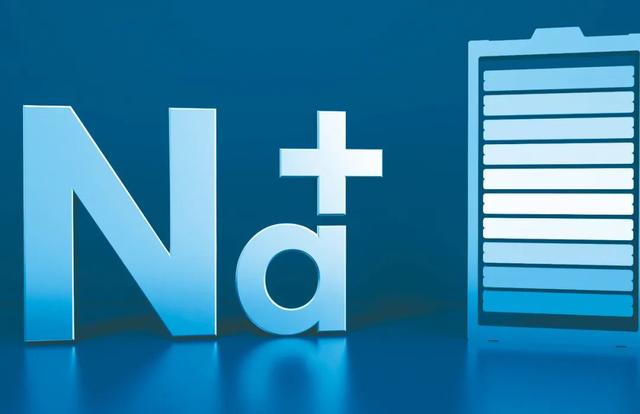 |
Welcome To Evlithium Best Store For Lithium Iron Phosphate (LiFePO4) Battery |
 |

In the fast-paced world of technological advancements, the quest for efficient and sustainable energy storage solutions has led to groundbreaking innovations. One such significant development is the emergence of sodium-ion batteries, presenting a compelling alternative to the widely used lithium-ion batteries. As we delve into the sodium-ion battery vs. lithium-ion battery debate, we uncover the intricacies that make each technology unique and the potential impact on our energy landscape.
Sodium-ion batteries have gained considerable attention in recent years as a potential game-changer in the energy storage domain. The key component of these batteries is sodium ions, which replace traditional lithium ions. This substitution brings several advantages, including the abundance of sodium, a more cost-effective alternative compared to lithium.
One of the primary attractions of sodium-ion batteries is their cost efficiency. With sodium being a more abundant and economically viable resource than lithium, the production costs of sodium-ion batteries are significantly lower. This cost-effectiveness opens doors for widespread adoption, especially in large-scale energy storage projects.
The environmental impact of energy storage technologies is a crucial consideration in our eco-conscious era. Sodium-ion batteries, with their reliance on a more abundant resource, offer a more sustainable and environmentally friendly option. Reduced dependency on rare materials makes sodium-ion batteries an attractive choice for those prioritizing green and sustainable energy solutions.
Safety is paramount in battery technology, and sodium-ion batteries come with their set of safety features. These batteries exhibit a lower risk of thermal runaway, a phenomenon often associated with lithium-ion batteries. The enhanced safety profile makes sodium-ion batteries an appealing choice, especially in applications where safety is of utmost importance.
Lithium-ion batteries have long been the standard in energy storage, powering everything from smartphones to electric vehicles. While sodium-ion batteries present exciting possibilities, lithium-ion batteries maintain their dominance for several compelling reasons.
One of the key factors contributing to the widespread use of lithium-ion batteries is their high energy density. Lithium-ion batteries can store a significant amount of energy in a compact space, making them ideal for portable electronic devices and electric vehicles where space is a premium.
The infrastructure supporting lithium-ion battery production and recycling is well-established. The extensive network of manufacturers, recyclers, and research facilities contributes to the continued refinement and improvement of lithium-ion battery technology. This established infrastructure gives lithium-ion batteries a significant edge in terms of scalability and reliability.
Lithium-ion batteries have undergone years of research and development, resulting in a mature and refined technology. The widespread use of lithium-ion batteries in various applications has led to continuous improvements, making them a reliable and trusted choice for energy storage.
As we weigh the advantages and disadvantages of sodium-ion and lithium-ion batteries, it becomes evident that each has its unique strengths. The choice between the two depends on specific requirements, cost considerations, and the desired environmental impact.
In the sodium-ion battery vs. lithium-ion battery debate, sodium-ion batteries emerge as a promising alternative with their cost efficiency, environmental friendliness, and safety features. However, lithium-ion batteries maintain their dominance, driven by their high energy density, established infrastructure, and technological maturity.
In conclusion, the competition between sodium-ion and lithium-ion batteries represents a positive shift towards sustainable and efficient energy storage solutions. The dynamic landscape of battery technology continues to evolve, and the coexistence of these two technologies offers a diversified approach to meet the diverse needs of our energy-dependent world.
Q1: Are sodium-ion batteries suitable for electric vehicles?
A1: While sodium-ion batteries show promise, the current focus for electric vehicles remains on lithium-ion technology due to its higher energy density.
Q2: Can existing devices use both sodium-ion and lithium-ion batteries interchangeably?
A2: No, the two technologies have different charging and voltage characteristics, making them incompatible without specific modifications.
Q3: Are sodium-ion batteries completely free from safety concerns?
A3: While sodium-ion batteries exhibit a lower risk of thermal runaway, safety measures are still essential, especially in large-scale applications.
Q4: How recyclable are sodium-ion batteries compared to lithium-ion batteries?
A4: The recycling infrastructure for sodium-ion batteries is still developing, whereas lithium-ion batteries benefit from a more established recycling process.
Q5: Which technology is more likely to dominate in the future?
A5: The future of energy storage might witness a coexistence of both technologies, with each catering to specific applications and market demands.
Edit by editor
Last Update:2024-03-02 16:52:58
All Rights reserved © 2026 Evlithium Limited